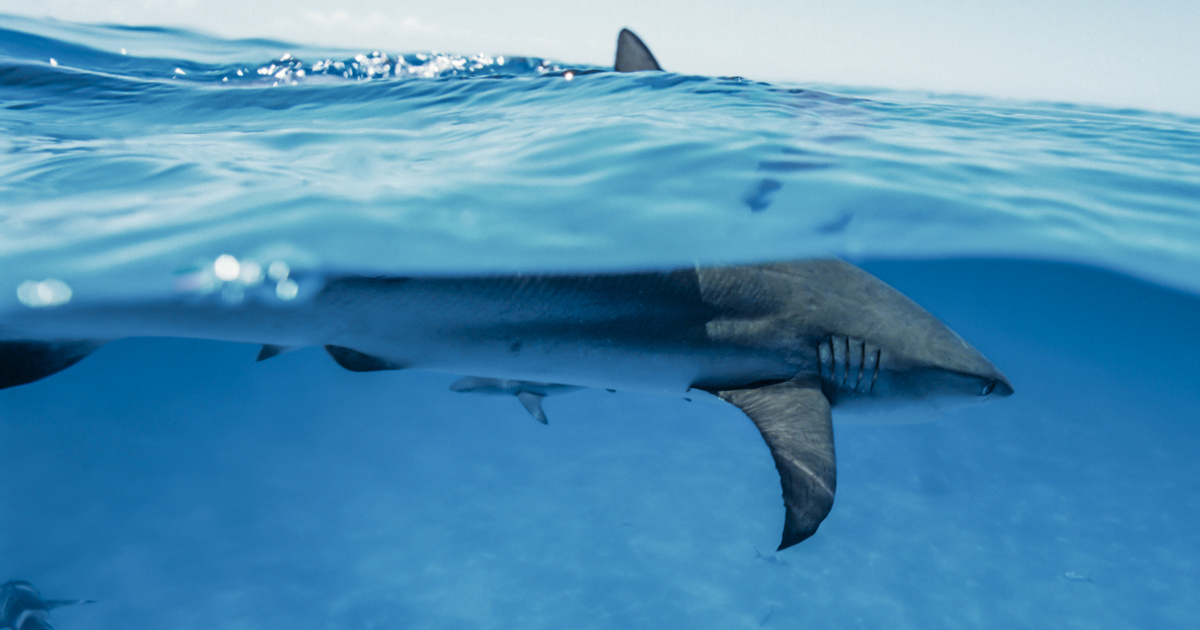There have always been sharks, and we hope there will be, but lately there have been more and more reports of shark attacks leading to deaths. Since saber-toothed fish apparently haven’t started attacking people recently, many people attribute the increase in cases to the fact that we’re getting more and more information about them thanks to social media – however, according to the researchers, the number of such attacks has indeed increased, and the reasons for this may have been answered recently.
The increasing trend of shark attacks may have already struck a chord in the minds of people who are preparing for summer vacations, and many prefer to avoid popular vacation spots in Egypt, Israel or Australia because of what they have been through in the last period. The only question is what could be causing the cases in which the deaths are increasing.
Global warming is at the top of the blacklist
Just as nowadays there is almost no natural problem or disaster that is not blamed for global warming and its effects, researchers have put climate change at the top of the list of culprits for shark attacks. Not even illegally, because
Most marine organisms can only survive within a certain temperature range, which also means that species seek out new habitats as conditions change.
In accordance with this, as our waters are getting warmer, species are also scattered over an increasingly large area, which could explain why shark attacks occur in places where this was not typical before. Experts say sharks generally prefer cooler waters, so they may travel north earlier in the year as they search for waters with more desirable temperatures.
Off the west coast of the United States, smaller great white sharks are increasingly moving north as Pacific waters warm, In Nature Scientific Reports From a study published following a significant increase in the number of young white sharks in Monterey Bay since 2014.
This theory is also supported by investigators on the coasts of Australia, which are often affected by shark attacks, and who also believe that the increase in the number of deaths may be due to climate change, he writes. Science Times.
As the oceans warm, entire marine ecosystems are being harmed and/or forced to adapt. Because of this, many species begin to migrate irregularly, and predators follow the new path of their prey.
For sharks, this may mean tracking their prey in shallow waters near shore, where they are most likely to encounter humans.
Australia is severely affected by global warming, and surface water around the continent is four times higher than the global average due to devastating bushfires that are getting worse every year. As a result, the Great Barrier Reef has been seriously damaged, which may be responsible for the huge diversity of the marine ecosystem.
The problem may not be sharks, but human population growth
Despite the fact that the number of shark attacks has actually increased in the past decade, the root of the problem is not necessarily found in the sharks. The population is growing at a much faster rate than the number of sharks, therefore
As more and more people go to shark habitats, namely the seas and oceans, the number of attacks has also increased proportionally.
And if the number of one side increases, the chance of attacks also increases. However, factors from global warming cannot be completely ruled out in this case either. Because of the increasingly hot summers, more and more people choose various beach vacations. Thanks to low-cost airlines, most of them now suit more and more people financially tooIt is for this reason that the oceans and beaches are filled with tourists wanting to relax – who can then easily meet sharks in search of food.
However, despite the growing number, scientists maintain that there is mostly nothing to fear from sharks, with shark attacks claiming about six lives each year, compared to an average of 20 people who die from lightning strikes each year, for example. And if you meet a shark? It’s still not worth swimming.
Additionally, since sharks are not used to human flesh, the vast majority of shark attacks are not actually fatal.
In the overwhelming majority of shark attacks, especially if we are talking about a small specimen, it inflicts only an exploratory bite on its victim. Once the shark realizes that a human is not what it wants to eat, as it is not part of its diet, it swims away, usually leaving behind one or two non-fatal wounds.
— explained marine biologist James Solikowski hv newsto.
(Cover photo: Alexis Rosenfeld/Getty Images)









































